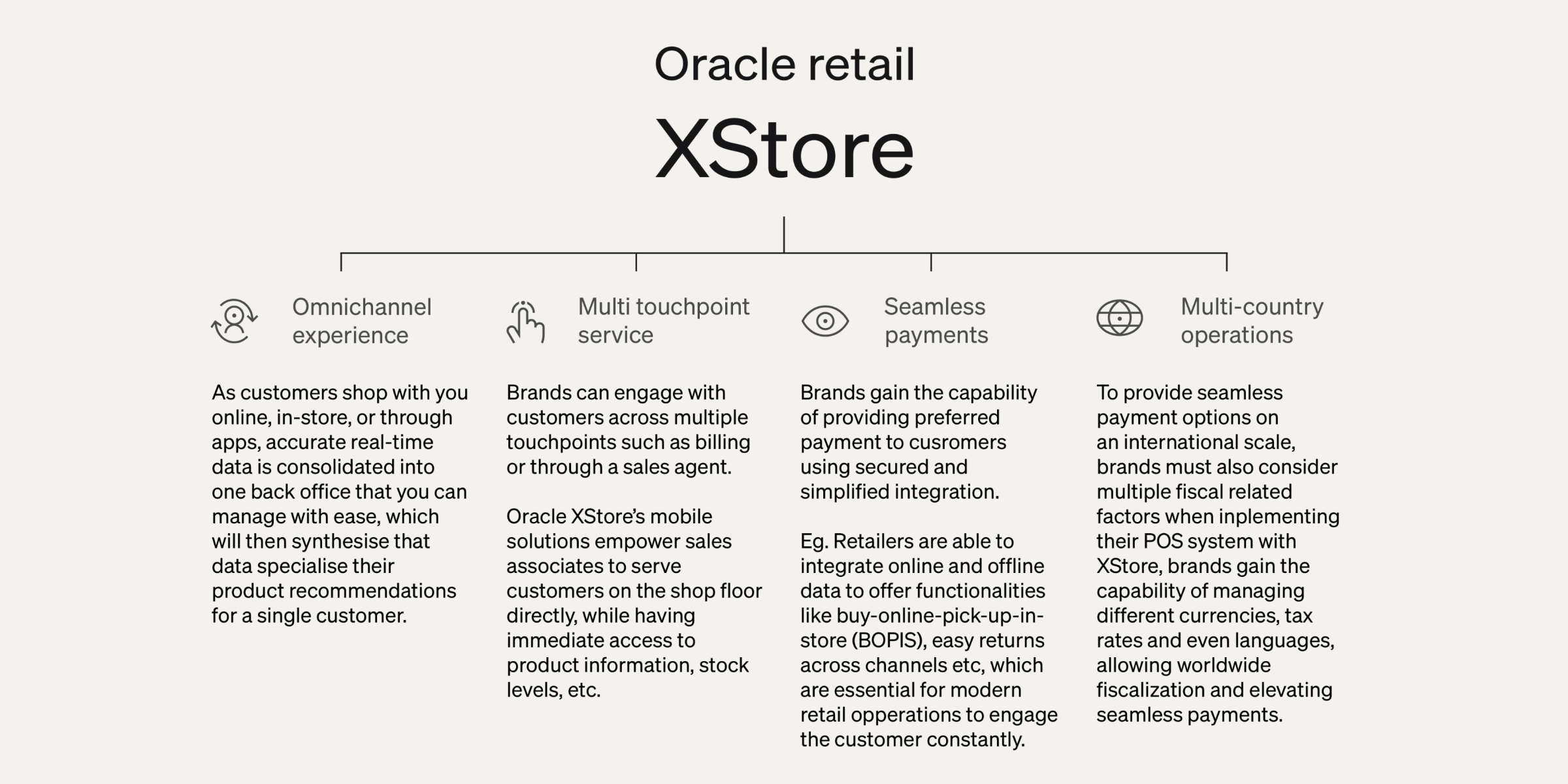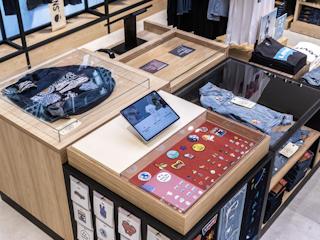novembro 08, 2024
The desire for immersive shopping environments in the current retail landscape has prompted brands to innovate by creating experiential outlets that go beyond traditional retail. By integrating interactive elements, personalized services and unique atmospheres, these brands are transforming their stores into destinations where customers can connect with products and the brand itself on a deeper level.
Brands such as Decathlon have made it a point to be 100% integrated, with 20% of its sales generated digitally, while Lululemon places their personalized customer experience in the details, providing virtual shopping meetings and even a dedicated shopping consultant to attend to their every need.
This trend underscores the evolving nature of consumer expectations and the importance of delivering a holistic and enjoyable experience rather than just a transaction. One of the most important customer touchpoints for retailers worldwide is the point of purchase, irrespective of the channel utilized brands must provide a seamless and memorable point of sale experience for their customers to drive loyalty and repeat purchase.
But how have brands achieved this feat of weaving their ethos deeper into their brand storytelling while enhancing customer experience?
What is a POS system?
A point of sale (POS) system is a software solution used to process retail transactions. It can manifest as a physical device in brick-and-mortar stores or as a checkout point in web-based stores.
However, the software for POS devices is becoming more intricate, with features that allow retailers to monitor inventory and buying trends, track pricing accuracy and collect marketing data. Points of sale are a pivotal focus for marketers because consumers tend to make purchasing decisions on high-margin products or services at these strategic locations.
In the retail industry, the POS system is a key cornerstone in ensuring smooth and efficient operations. From processing sales transactions to managing inventory and providing valuable insights into customer behaviour, a well-implemented POS system is essential for success.
Characteristics of an effective POS system
An effective POS system focuses on having an omnichannel approach. To achieve this, it will have the following features:
1. Ease of use and mobility
Points of sale are an important focus for marketers as consumers tend to make purchasing decisions on high-margin products or services at these strategic locations. From the customers perspective, a good POS system will allow a seamless and secure payment experience through flexible multi payment methods along with reliable and secured payments.
2. Inventory management
A streamlined POS system offers real-time insights into inventory levels, enabling store managers to accurately track stock levels. With current data at their disposal, retailers can make informed decisions about restocking, promotions and sales strategies to ensure that popular products remain available to customers.
Inventory optimization: By analyzing sales data and trends, an efficient POS system helps retailers fine-tune their inventory. This optimization allows for ideal product stocking, reducing excess inventory while minimizing the risk of understocking. Consequently, retailers can capitalize on sales opportunities while lowering carrying costs and inventory-related losses.
3. Effective customer relationship management (CRM)
A third crucial feature of a retail POS system is CRM. Coupled with its ease of use, a mobile POS will enable convenience and seamlessness across the store with personalized services tailored to the customer needs and expectations.
Retail brands are thus encouraged to implement POS systems with robust CRM features. These should integrate loyalty programs, email marketing and social media platforms, enabling brands to segment and target customers with personalized offers, discounts and recommendations.
This approach enhances the personalization of the customer journey by leveraging insights into past purchases and preferences. It allows for tailored recommendations and suggested complementary items, indirectly leading to increased cross-channel sales, faster checkouts and improved overall operational efficiency.
Moreover, it should also have a feedback feature that allows you to solicit and respond to customer reviews, ratings and suggestions. A POS system that can manage your customer relationships will help you build trust, loyalty and repeat business.
4. Security and compliance
A good POS system should be able to protect your data and transactions from unauthorized access, theft or fraud, with a security feature that encrypts your data, conducts a regular backup of your data and requires passwords or biometric authentication for access. It should also have a compliance feature that adheres to the relevant laws and regulations, depending on your industry and location to help brands avoid fines, lawsuits and reputation damage.
5. Scalability and integration
An effective POS system should be scalable, allowing for the addition or removal of features, devices or users as needs change. It should support multiple locations, currencies and languages. Integration capabilities are also crucial, enabling connections with accounting, payroll, e-commerce and other software platforms, facilitating data sharing and synchronization. A scalable and integrated POS system streamlines operations, expands reach and enhances efficiency.
This integration allows for instantaneous updates across all departments, enabling better decision-making and resource allocation. As a result, retailers can optimize their workflows and minimize disruptions, leading to greater efficiency in sales transactions.
6. Support and service
A quality POS system should have a support and service feature, that provides you with uninterrupted access to phone, email, chat or online help, and offers training, updates, and maintenance. It should also have a warranty or guarantee feature, that covers any defects, damages, or malfunctions and offers replacement or repair. A POS system that has good support and service will help you minimize downtime, resolve problems and maximize performance
Challenges when brands don't have an effective POS system
-
Cybersecurity and compliance
-
POS systems: These encompass a range of components, including terminals, keypads, chip readers, printers and inventory tracking systems. Older POS systems often lack adequate encryption, making them susceptible to attacks. Additionally, non-compliant POS terminals become attractive targets for hackers due to their vulnerabilities.
-
Credit card terminals: While credit card terminals focus primarily on processing payments, they still pose security risks if not compliant with regulations like PCI. Although they may not handle as much data as full POS systems, they remain crucial components in the transaction process.
-
-
POS endpoints: After processing transactions, sensitive data is stored in various endpoints. However, if these endpoints are not adequately secured, they become vulnerable to malicious queries and data manipulation.
-
The most common issues encountered with POS systems stem from malware attacks. Malware often infiltrates systems through vulnerabilities in POS components and then exploits unencrypted data.
-
Selecting an incompatible POS system
-
The diversity of available POS systems presents another challenge for retail brands, as selecting an inappropriate system can impede rather than enhance operations.
-
A one-size-fits-all approach may lead to functionality gaps, compatibility issues, and inefficiencies, undermining the intended benefits of POS implementation.
-
-
Improper Installation
-
Improper installation of POS systems can lead to a myriad of operational challenges, ranging from hardware malfunctions to software errors. Inadequate training and technical support further exacerbate these issues, hindering employees’ ability to leverage the full capabilities of the system and compromising service quality.
-
Oracle retail point of sale: XStore
When selecting a POS system, one of the most robust options used by brands is XStore. This seamless POS system, created by Oracle, enables brands to craft an immersive yet effortless customer experience. The solution offers numerous benefits to its users, including:

To illustrate, consider how one luxury brand utilized XStore to achieve its objective of providing a seamless customer experience. Given the brand's international reach, streamlining its digital processes proved to be a monumental task.
Faced with a wealth of customer data and uncertainty about how to leverage it, the luxury brand recognized the need to understand their customers' data to optimize the customer journey and enhance mobility. They aimed to centralize customer and employee management through an effective CRM and provide personalized product recommendations via a worldwide centralized platform for data and analytics.
XStore was subsequently integrated and automated into the luxury brand's systems before being deployed globally across over 60 countries where the brand had a presence. With XStore, the brand gained a more centralized view of their customer data. Given XStore's exceptional quality, many brands and retailers have implemented this solution to capitalize on the trend of immersive experiences in the retail industry.
To harness the true potential of XStore, Valtech has a Centre of Excellence specifically designed to implement XStore effectively as a full service offering from the first point of integration, automation, testing and its consistent support. With a strong team with several global Xstore delivery experience in over 60 countries, Valtech’s partnership with Oracle extends on a global reach with an equal global support capability, harnessing local knowledge to enable successful support service delivery. Moreover, the Centre of Excellence also engages with 3rd party providers to fix any issues, thus having end-to-end ownership.
Integrating advanced POS systems like XStore has become crucial for retailers aiming to deliver immersive and seamless shopping experiences. By incorporating features such as omnichannel capabilities, robust CRM tools and comprehensive security measures, these systems enable brands to manage operations efficiently while offering personalized and secure customer interactions. By investing in a quality POS system tailored to their needs, brands position themselves for success in an evolving retail landscape where providing a unified and engaging experience at the point of sale is paramount.










